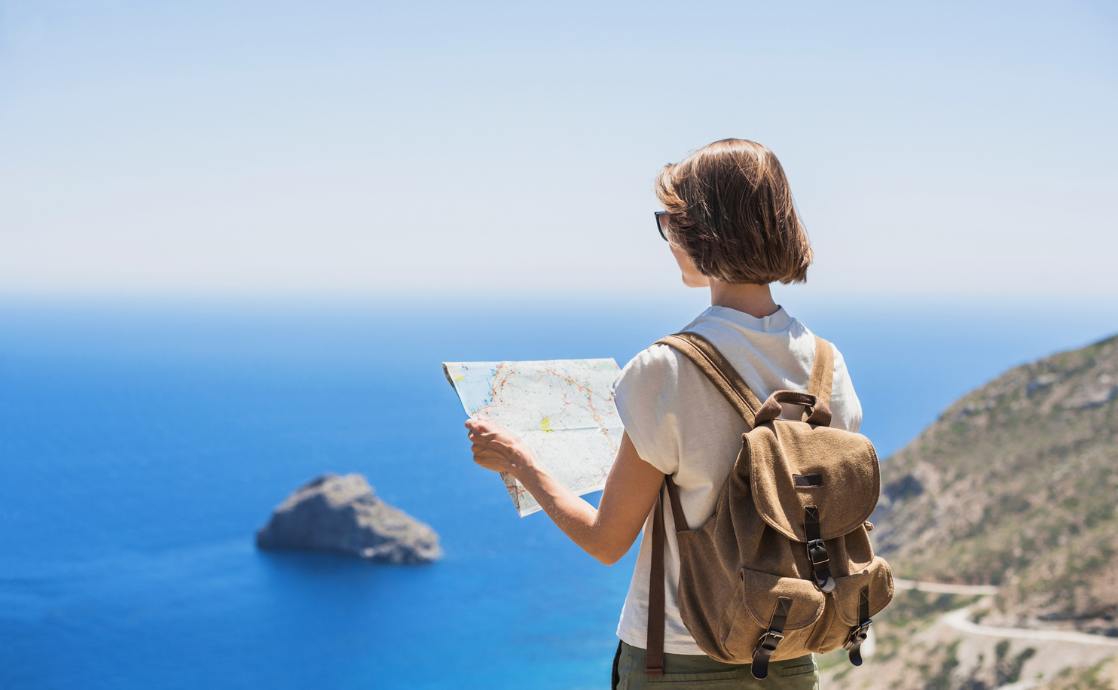The views expressed in our content reflect individual perspectives and do not represent the authoritative views of the Baha'i Faith.
I enjoy hearing about other people’s travel experiences. In doing so, I not only learn about the places they’ve been but also more about them as storytellers and as people.
When we hear those stories, and ask questions, we learn what gave them pleasure, the troubles they overcame, their lessons learned — all of which can enrich and enlighten.
I’m fortunate to have traveled a fair amount myself, starting as a teenager on camping trips with my Girl Scout troop. But the planet is large, and the list of where I’d like to go seems much longer than the list of where I’ve already been.
RELATED: Anticipation: the Secret to a Great Holiday
So when someone asks me, “What is your favorite place?” I seldom have an answer other than to offer yet another question: “Based on what criteria?”
I may prefer one place because of its friendly people, ideal weather, great food, lively music, inspiring architecture, ease of travel, beautiful countryside, challenging hiking, favorable exchange rates, or a further array of characteristics. So I always reserve the right to change my answer from one day to the next, depending on my own mood and admittedly subjective memories.
My main travel preference? I like the places I visit to be different from where I live. As much as I yearn for beauty, visiting somber, colorless places has enlarged my view of the world. In fact, some of my most cherished experiences have occurred in places where the people were experiencing great difficulty politically or economically.
During such difficulties, I have found people to be the most gracious, generous, and hospitable. They shared everything they had, were eager to exchange stories and news, and were determined to improve their circumstances. Love of family and commitment to community shone through in the face of hardship.
When it comes to food, I always try to follow my father’s example. From the time I was a little kid he would advise, “Eat like the locals.” Fortunate to be allergy-free, I can be an omnivore when I travel. In my own home I’m vegetarian, but as a visitor I will taste almost anything. Sharing food with friends and strangers is a form of cultural exchange that helps us bond with each other.
Music and the arts often comprise the highlights of any trip. How people express themselves is both revealing and fun to explore. All forms of cultural expression can be seen as a celebration of diversity. Our colorful human garden is vividly displayed in this way.
Some of my favorite places are on the list because of what they required of me as a visitor. When my self-reliance came into play — or even the reverse, where I had to trust strangers or unfamiliar systems — made for thrilling times. They richly rewarded my curiosity, detachment, and flexibility; my sense of humor often got a good workout, too.
RELATED: Spiritual Traveling on the Rainbow and Corn Pollen Path
The Baha’i writings encourage travel, especially when it includes a service project. Beyond its educational and recreational value, travel enables us to learn about others, helps us to grow spiritually, and can be compared to the journey of the spirit. In the words of Abdu’l-Baha. In Some Answered Questions, Abdu’l-Baha said:
… when a man travels in an orderly and methodical manner through many different countries and regions, this will most certainly be the means of acquiring perfections, for he will see at first hand various sites, scenes, and regions; learn about the affairs and circumstances of other nations; become familiar with the geography of other lands; acquaint himself with their arts and wonders; become informed of the customs, conduct, and character of their inhabitants; witness the civilization and the advancements of the time; and be apprised of the manner of government, the capacity, and the receptivity of each country.
As Abdu’l-Baha pointed out, travel throughout the physical world increases our appreciation and love for other people, and it reminds us to include them in our thinking and planning.
But if we cannot physically travel for some reason, then perhaps we can travel in other ways. We can talk to people who have traveled, make a point of meeting people from other places, watch documentaries, read books and magazines, explore museums, take virtual online tours, and find other ways to experience the wonders of the world.
I’m now thinking that the next time someone asks me, “What is your favorite place?” I will reply, “I have two favorites — the last one I explored and the next one on my list.”
















Comments
Sign in or create an account
Continue with Googleor